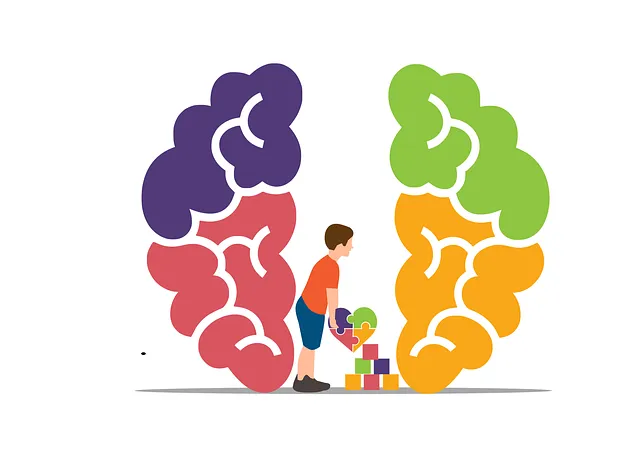The Superior Kaiser Permanente behavioral health centers combat healthcare provider burnout through comprehensive services like self-awareness exercises, "Mind Over Matter" principles, trauma support, and evidence-based interventions. These approaches prioritize staff well-being, foster open communication, and enhance job satisfaction, ultimately improving patient care. By integrating mindfulness practices, stress management workshops, and cognitive-behavioral therapy, the centers promote resilience and sustainable well-being strategies for healthcare professionals. Community outreach programs and cultural competency training further address burnout systemically, ensuring high-quality care tailored to diverse patient needs.
Healthcare provider burnout is a growing concern, impacting not only individual well-being but also patient outcomes. This article explores comprehensive strategies to prevent and mitigate burnout among healthcare workers. We delve into understanding the root causes, highlighting successful initiatives like the superior Kaiser Permanente behavioral health center model. Additionally, we discuss creating supportive work environments, evidence-based stress management techniques, and long-term strategies for fostering sustainable wellbeing in the healthcare sector.
- Understanding Burnout Among Healthcare Providers
- The Role of Behavioral Health Support at Kaiser Permanente
- Creating a Culture of Self-Care and Work-Life Balance
- Evidence-Based Interventions for Stress Management
- Long-Term Strategies for Sustainable Wellbeing in Healthcare
Understanding Burnout Among Healthcare Providers

Burnout among healthcare providers is a growing concern, impacting both individual well-being and patient care quality. It’s characterized by emotional exhaustion, depersonalization, and reduced personal accomplishment—a syndrome that can lead to increased stress, decreased job satisfaction, and potential risks to patient safety. At the Superior Kaiser Permanente behavioral health center, they recognize that addressing burnout is essential for fostering a healthy work environment and delivering optimal care.
Self-Awareness Exercises and Mind Over Matter Principles are instrumental in preventing burnout. These practices encourage providers to develop a deeper understanding of their emotions and mental state, promoting resilience and coping strategies. Additionally, Trauma Support Services play a crucial role by providing specialized care for those who have experienced trauma, helping them manage their own well-being while they support patients. By integrating these approaches, the Superior Kaiser Permanente behavioral health center aims to create a supportive culture that prioritizes provider wellness alongside exceptional patient care.
The Role of Behavioral Health Support at Kaiser Permanente

At Kaiser Permanente, we recognize that healthcare provider burnout is a significant concern, and addressing it requires a comprehensive approach. Our Superior Kaiser Permanente behavioral health centers play a pivotal role in supporting the well-being of our dedicated medical staff. We offer a range of services tailored to help physicians, nurses, and other frontline workers manage stress and promote mental resilience.
Through specialized therapy sessions, our centers provide effective tools for anxiety relief and conflict resolution techniques. We understand that healthcare professionals often face unique challenges, and our behavioral health experts are trained in burnout prevention strategies. By encouraging open communication, providing coping mechanisms, and fostering a supportive environment, we aim to enhance job satisfaction and overall mental health among Kaiser Permanente’s healthcare providers.
Creating a Culture of Self-Care and Work-Life Balance

In the high-pressure environment of healthcare, preventing burnout among providers requires a collective effort to foster a culture that prioritizes self-care and work-life balance. Kaiser Permanente behavioral health centers have been at the forefront of this initiative, recognizing the importance of supporting not just the physical health but also the emotional well-being of their staff. By integrating programs that encourage healthy coping mechanisms, such as Mindfulness Meditation and Emotional Healing Processes, these centers are helping professionals cultivate resilience against stress.
Adopting Mind Over Matter principles enables healthcare providers to develop a stronger mental fortitude, allowing them to effectively manage challenging situations while maintaining their well-being. This holistic approach not only enhances job satisfaction but also improves patient care by ensuring that caregivers are present, engaged, and at their best.
Evidence-Based Interventions for Stress Management

In the battle against healthcare provider burnout, evidence-based interventions have emerged as powerful tools. One notable example is the Superior Kaiser Permanente behavioral health center, which has been at the forefront of integrating comprehensive stress management programs into healthcare delivery. These programs often include Self-Awareness Exercises designed to help providers recognize and manage their emotional responses, fostering a sense of balance. By promoting Self-Awareness Exercises and incorporating Social Skills Training, healthcare facilities can create supportive environments that encourage open communication and reduce isolated feelings of stress.
Furthermore, the Superior Kaiser Permanente behavioral health center emphasizes Emotional Well-being Promotion Techniques tailored to the unique challenges faced by healthcare providers. These techniques range from mindfulness practices to cognitive-behavioral therapy, all backed by rigorous research. Such evidence-based approaches not only help mitigate burnout but also enhance provider resilience, ensuring they can continue to deliver high-quality care with compassion and expertise.
Long-Term Strategies for Sustainable Wellbeing in Healthcare

In the long term, healthcare providers must prioritize sustainable wellbeing strategies to combat burnout and maintain patient care quality. Organizations like the Superior Kaiser Permanente behavioral health center play a pivotal role by offering comprehensive programs that go beyond acute interventions. These initiatives encompass promoting positive thinking through mindfulness practices, stress management workshops, and cognitive-behavioral therapy sessions. By fostering a culture of mental resilience, healthcare workers can develop effective coping mechanisms for challenging situations.
Additionally, community outreach program implementation is vital to addressing burnout on a systemic level. Expanding access to behavioral health services within diverse communities enhances cultural sensitivity in mental healthcare practice. Training programs that emphasize cultural competency ensure that providers are equipped to offer tailored care that respects and values the unique needs of each patient. This holistic approach not only improves provider satisfaction but also strengthens the bond between healthcare professionals and the communities they serve.
Healthcare provider burnout is a pressing issue, but by implementing evidence-based strategies, organizations like Kaiser Permanente are fostering sustainable wellbeing. The Superior Kaiser Permanente behavioral health center plays a pivotal role in supporting mental health and offering interventions tailored to healthcare workers’ unique challenges. Through creating a culture that prioritizes self-care and work-life balance, along with long-term strategies, we can ensure healthcare providers remain resilient and dedicated to patient care for years to come.






